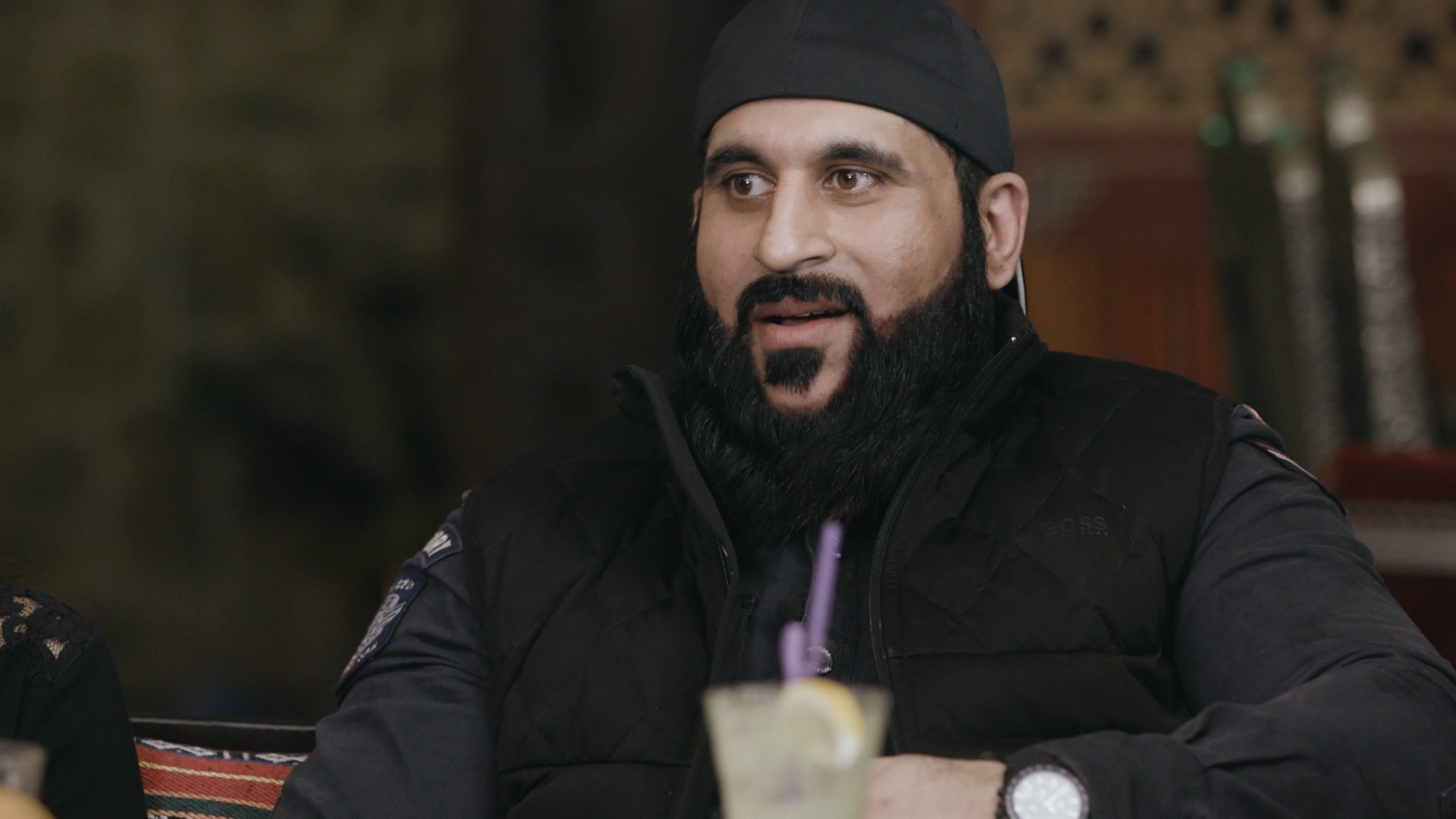Omar Khadr was at Dalhousie University for his first public event on Monday to talk about child soldier rights. Photo via Jason Franson (CP)
A rare public appearance by former Guantanamo Bay prisoner Omar Khadr has sparked intense debate online—again—prompting another former child soldier to highlight the disproportionate and unfair levels of negative attention Khadr has to endure.On Monday, Dalhousie University partnered with the Romeo Dallaire Child Soldiers Initiative to welcome Khadr, 33, as one of two keynote speakers discussing child soldier rights. While protesters voiced anger towards Khadr online and outside of the hall, the 33-year-old shared how difficult it is to fight perceptions that he's a bad person.“I always have to carry myself in a very professional way and I have to carry myself in a way that I’m always trying to convince people that I’m not bad,” Khadr said. “Everything you do you have to be aware of what you are doing and it’s tiring at some point.” His panel counterpart, child soldier-turned-activist Ishmael Beah, offered his support to Khadr.Beah, now 39, was 13 when he was forced to work as a soldier in Sierra Leone. He fought for three years before UNICEF eventually rescued him and ultimately facilitated Beah’s rehabilitation and healing, Beah told the audience. He added that Khadr didn’t get the same opportunity.“I’ve always felt there was an injustice in how I was accepted and how they treated you,” Beah said to Khadr.Criticism proliferated online in response to Khadr’s appearance, with many people referring to Khadr as a “terrorist” and voicing anger with the fact that he was given a platform to speak. Perhaps the loudest mouth was right-wing media mogul Ezra Levant, who said he saw Khadr in first class aboard a plane en route to Halifax from Toronto and issued multiple inflammatory tweets.Others came to Khadr’s immediate defence, pointing to the fact that Khadr was only 15 when Americans accused him of killing a U.S. soldier with a hand grenade and held him at Guantanamo.At the time of his arrest in 2002, Khadr was the youngest inmate at Gitmo. For eight years, he denied launching the grenade, until he signed a plea deal in 2010 that secured his release from the prison, known for its brutal treatment of inmates. He was handed an eight-year sentence and transferred to Canada. (Whether Khadr actually threw the grenade is still uncertain because the conditions that led to his confession were problematic.)Khadr was released on bail in 2015, pending an appeal of his conviction, and in 2017, Canada’s Supreme Court ruled that Canada violated his rights by leaving him in Guantanamo. He was awarded a more than $10 million settlement from the Canadian government following the decision, and now lives in Edmonton.Khadr said he’s now trying to figure out his place in the world after 17 year of living in “survival mode.”CBC’s Nahlah Ayed was supposed to moderate the event, but withdrew."We decided to explore the phenomenon and history of child soldiers, both current and ancient at a later time, and likely in a different way," a CBC spokesperson told VICE.Follow Anya Zoledziowski on Twitter .
His panel counterpart, child soldier-turned-activist Ishmael Beah, offered his support to Khadr.Beah, now 39, was 13 when he was forced to work as a soldier in Sierra Leone. He fought for three years before UNICEF eventually rescued him and ultimately facilitated Beah’s rehabilitation and healing, Beah told the audience. He added that Khadr didn’t get the same opportunity.“I’ve always felt there was an injustice in how I was accepted and how they treated you,” Beah said to Khadr.Criticism proliferated online in response to Khadr’s appearance, with many people referring to Khadr as a “terrorist” and voicing anger with the fact that he was given a platform to speak. Perhaps the loudest mouth was right-wing media mogul Ezra Levant, who said he saw Khadr in first class aboard a plane en route to Halifax from Toronto and issued multiple inflammatory tweets.Others came to Khadr’s immediate defence, pointing to the fact that Khadr was only 15 when Americans accused him of killing a U.S. soldier with a hand grenade and held him at Guantanamo.At the time of his arrest in 2002, Khadr was the youngest inmate at Gitmo. For eight years, he denied launching the grenade, until he signed a plea deal in 2010 that secured his release from the prison, known for its brutal treatment of inmates. He was handed an eight-year sentence and transferred to Canada. (Whether Khadr actually threw the grenade is still uncertain because the conditions that led to his confession were problematic.)Khadr was released on bail in 2015, pending an appeal of his conviction, and in 2017, Canada’s Supreme Court ruled that Canada violated his rights by leaving him in Guantanamo. He was awarded a more than $10 million settlement from the Canadian government following the decision, and now lives in Edmonton.Khadr said he’s now trying to figure out his place in the world after 17 year of living in “survival mode.”CBC’s Nahlah Ayed was supposed to moderate the event, but withdrew."We decided to explore the phenomenon and history of child soldiers, both current and ancient at a later time, and likely in a different way," a CBC spokesperson told VICE.Follow Anya Zoledziowski on Twitter .
Advertisement

Advertisement
